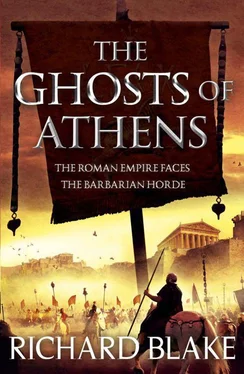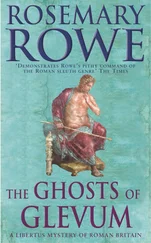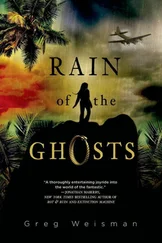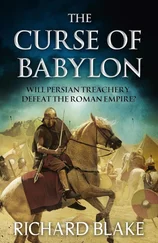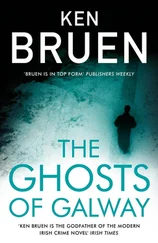Richard Blake - The Ghosts of Athens
Здесь есть возможность читать онлайн «Richard Blake - The Ghosts of Athens» весь текст электронной книги совершенно бесплатно (целиком полную версию без сокращений). В некоторых случаях можно слушать аудио, скачать через торрент в формате fb2 и присутствует краткое содержание. Год выпуска: 2012, Издательство: Hodder & Stoughton, Жанр: Исторические приключения, на английском языке. Описание произведения, (предисловие) а так же отзывы посетителей доступны на портале библиотеки ЛибКат.
- Название:The Ghosts of Athens
- Автор:
- Издательство:Hodder & Stoughton
- Жанр:
- Год:2012
- ISBN:нет данных
- Рейтинг книги:3 / 5. Голосов: 1
-
Избранное:Добавить в избранное
- Отзывы:
-
Ваша оценка:
- 60
- 1
- 2
- 3
- 4
- 5
The Ghosts of Athens: краткое содержание, описание и аннотация
Предлагаем к чтению аннотацию, описание, краткое содержание или предисловие (зависит от того, что написал сам автор книги «The Ghosts of Athens»). Если вы не нашли необходимую информацию о книге — напишите в комментариях, мы постараемся отыскать её.
The Ghosts of Athens — читать онлайн бесплатно полную книгу (весь текст) целиком
Ниже представлен текст книги, разбитый по страницам. Система сохранения места последней прочитанной страницы, позволяет с удобством читать онлайн бесплатно книгу «The Ghosts of Athens», без необходимости каждый раз заново искать на чём Вы остановились. Поставьте закладку, и сможете в любой момент перейти на страницу, на которой закончили чтение.
Интервал:
Закладка:
Chapter 8
I’ve said I was in an Imperial galley. This gives little notion of the size or magnificence of what the Viceroy had forced on me for my departure from Alexandria. It was perhaps the biggest vessel in the whole Imperial service. Over a hundred yards long, and fitted out with a lavish indifference to cost that went some way to offsetting the utter want of taste, it was as fine a prison as anyone could have desired. When told I’d be taking ship for Constantinople, I had insisted on something small and fast. Nicetas had smiled and nodded and given me his own official galley. I’d seen this many times in the private harbour. For a good thousand years, it, or something like it, had been kept permanently ready for those times when the King, or Governor, or Duke, or Viceroy needed to get away from the Alexandrian mob. Now, thanks to Priscus, there was no mob left, we’d all been politely bundled into it and waved off with fair cries and crocodile tears. I had to admit, though, that, once those storms had blown up near Seriphos, anything lighter would have been torn apart. If drowning would have been a mercy compared with what might be waiting for me in Piraeus, there were others to think about. As it was, we’d lost half our oars, and had been creeping forward ever since, propelled by various arrangements of sails that might, in other circumstances, have claimed my entire interest.
Once out of my own very grand room, I turned left into the wide central corridor and made my way down the length of the galley to where Priscus had his quarters. Already muffled, the sound of crying children soon faded away, and was replaced by the continued mournful sound of that sailor’s shanty. As I came closer to the stern, I heard a sudden scream. I stopped and listened harder. I could just make out the hiss and impact of a whip before there was a second scream.
There was a soft voice behind me. ‘My Lord is disturbed by the flogging?’ the Captain asked. He’d been going up or coming down the ladder that led to the rowing decks. He now clambered easily up beside me and went through the motions of a bow. He’d taken off his boots, but still wore the fussy uniform he must have put on for his trip ashore. ‘It was the black rower with woollen hair,’ he explained with evident relish. ‘His dream of a supernatural origin for the storms has continued to disturb the other men.’
I nodded. Just as the biggest of the storms was hitting us, I’d pulled rank on the Captain and ordered all the rowers to be unchained. Since then, rowing had been impossible, and the men had been lounging about on the lower decks with nothing to do but compete at scaring each other.
I cleared my throat and tried to look haughty. ‘My secretary will need to discuss what slaves will come ashore with us,’ I said.
The Captain arched his eyebrows and somehow managed not to laugh. ‘I must inform Your Lordship,’ he said very softly indeed, ‘that my orders are to put you ashore without slaves. The local authorities will provide such assistance as may be required.’ I stared back without blinking. I’d finally learned something of the Captain’s own orders. Priscus and I had watched him receive these in a sealed packet. For all the questions he’d put, Priscus would have got better answers out of the Sphinx than from this shifty little Egyptian.
‘Very well,’ I said with a forced lightness of tone. ‘Be so good as to inform my secretary of this.’
The Captain bowed again, and asked if it would please me to see the flogging.
Without bothering to answer, I turned and continued along the corridor.
Bearing in mind its natural colour on this voyage, I failed to see why Priscus had taken the trouble to paint his face green. He sat alone in his cabin, looking down at his booted feet. ‘Fucking noise!’ he snarled with a look upwards. Now the flogging was over, the only sound from outside was a third or fourth repeat of the shanty. ‘Can’t these sailors ever keep their mouths shut?’ He pushed a glass cup against his chattering teeth and took a longish sip. He burped and pushed a hand under his ceremonial chain mail for a scratch. ‘So, dear boy, what’s the news?’ he finally asked with the ghost of a smile.
I stared up at the polished timbers of the ceiling and wondered if there was any suitable answer. Unlike Martin, Priscus had lost weight on the voyage. He’d been padded out when put into his uniform. But there was no hiding the bony wrists or the sagging wrinkles under his chin. This was my first sight of him in five days. Though the great storm had finally ended, his reaction to it hadn’t. His groans and the regular bowls of vomit carried from his cabin had told me he was alive. Now, if he was up and about, he still didn’t look more than the shadow of the grinning fiend who’d taken his farewell of the few persons of quality he’d somehow managed not to impale in Alexandria.
‘Shall we go up on the main deck?’ I asked. ‘There may be sod all to look at. But I fancy some last impression of liberty.’
Beneath an awning that caught most of the rain, I looked into a wall of grey mist. Unless I’d lost all sense of direction, I was looking towards Salamis. It was now more than eleven hundred and twenty years since the Athenians had fought their decisive battle there. While he was still up to any pretence of conversation, Priscus had assured me that the figure of three million given by Herodotus was impossible. But, if you divided all his numbers by ten, they began to make sense. The Spartans had held the pass at Thermopylae longer than anyone could think possible. Even so, the Persians had come on like a charging elephant. Nothing could have kept them from eventually sweeping through the pass. Their single weakness had been the long lines of communication back to Asia. By a stroke of genius, Themistocles had got the Athenians to abandon their city and concentrate all their naval force in the Bay of Salamis. There, the crushing weight of Persian shipping had been taken completely by surprise. Once they’d lost control of the sea, their whole land force was cut off and could be destroyed at leisure.
‘The problem with Herodotus,’ Priscus had said to me before the storms sent him scurrying to his cabin like a monk to his cell, ‘is that he just wasn’t a soldier. He was fine at repeating the gossip he’d picked up from the lower class of those who lived long enough to be his sources. But he had no understanding of grand strategy. The Persian attack was a combined operation. Knock away either of its legs, and the whole mass would fall to the ground. Realise this, and the Spartan counter-attack at Plataea becomes little more than a side skirmish. For myself, I’d never have risked a battle. Instead, I’d have kept up the sea blockade, and waited for the Persians to make a dash back towards Byzantium. All the way back, I’d have followed them by sea — wearing them down without ever coming to a full battle.’
He’d gone from this into a lecture on the need to keep your forces in being, and never risking a battle unless forced, or unless sure of victory. Had he given this lecture to Heraclius outside Caesarea? Priscus had spent the better part of a year obeying his own advice. It had worked so well, the Emperor had come out in person to take the Persian surrender. Of course, the booby had no sooner arrived than he gave orders for a battle — a battle that ended in our own catastrophic defeat.
We leaned together in silence and looked out into the mist. As members of the Imperial Council, it should have been our duty to suggest mitigations for what Heraclius had brought on us — the loss of Cappadocia and the exposing of Syria to invasion. But Priscus hadn’t been in Constantinople since the defeat, and I’d left before its news could arrive. Did it now matter what we thought? Were we still members of the Council?
Читать дальшеИнтервал:
Закладка:
Похожие книги на «The Ghosts of Athens»
Представляем Вашему вниманию похожие книги на «The Ghosts of Athens» списком для выбора. Мы отобрали схожую по названию и смыслу литературу в надежде предоставить читателям больше вариантов отыскать новые, интересные, ещё непрочитанные произведения.
Обсуждение, отзывы о книге «The Ghosts of Athens» и просто собственные мнения читателей. Оставьте ваши комментарии, напишите, что Вы думаете о произведении, его смысле или главных героях. Укажите что конкретно понравилось, а что нет, и почему Вы так считаете.
